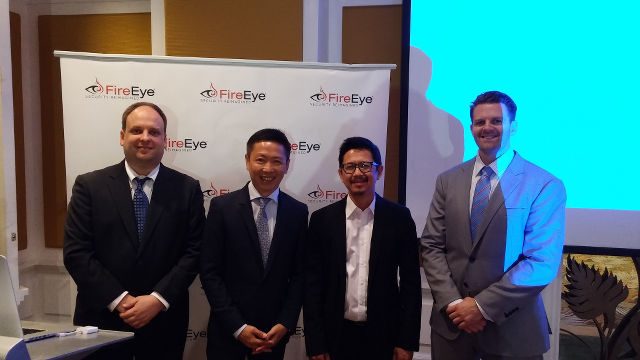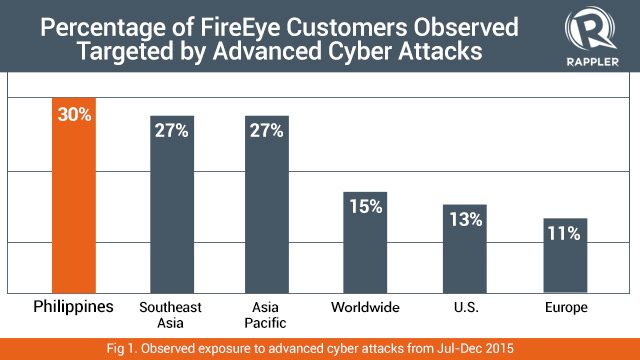SUMMARY
This is AI generated summarization, which may have errors. For context, always refer to the full article.

MANILA, Philippines – Network security firm FireEye said on Tuesday, April 12, that Philippine organizations were twice as likely to face an advanced cyberattack compared to the worldwide average.
In a press briefing, FireEye representatives said they observed at least 3 advanced persistent threat groups (APTs) and a number of other advanced threat actors targeting the country.
APTs work quietly on long-term cyberespionage campaigns to acquire data on targets of interest. The top sectors targeted in the Philippines include: government, business services (including outsourced services providers), gaming, hospitality, aerospace, defense, and shipbuilding.

FireEye observed that in the Philippines, 30% of its customers were targeted by advanced cyber attacks, compared to the worldwide average of 15%.
Eric Hoh, president for Asia Pacific at FireEye, said in a statement: “The Philippines’ cyber security gap is an urgent economic and national security concern. Organizations here are frequently targeted by advanced attackers.”
He added, “As geopolitical tensions drive rapid militarization in the South China Sea, it’s important we acknowledge the first shots in any conflict will be fired in cyberspace.”
Being targeted by APTs is made worse by weak cyber defenses, as it makes a highly targeted country further targeted by APT groups.
For instance, FireEye reported in April 2015 that a decade-long state-sponsored cyberespionage campaign was conducted by a China-based cyber threat actor. Targets of the operation included governments, businesses, and journalists which hold key political, economic, and military information on Southeast Asia and South Asia.
Clues found by FireEye in their analysis of the group’s malware suggest that the group targeted the Philippines as part of the campaign.
“In this new era,” Hoh explained, “nations with weak cyber defenses can expect their infrastructure, services, and defensive capabilities to be significantly eroded in armed conflict.” – Rappler.com
Add a comment
How does this make you feel?
There are no comments yet. Add your comment to start the conversation.